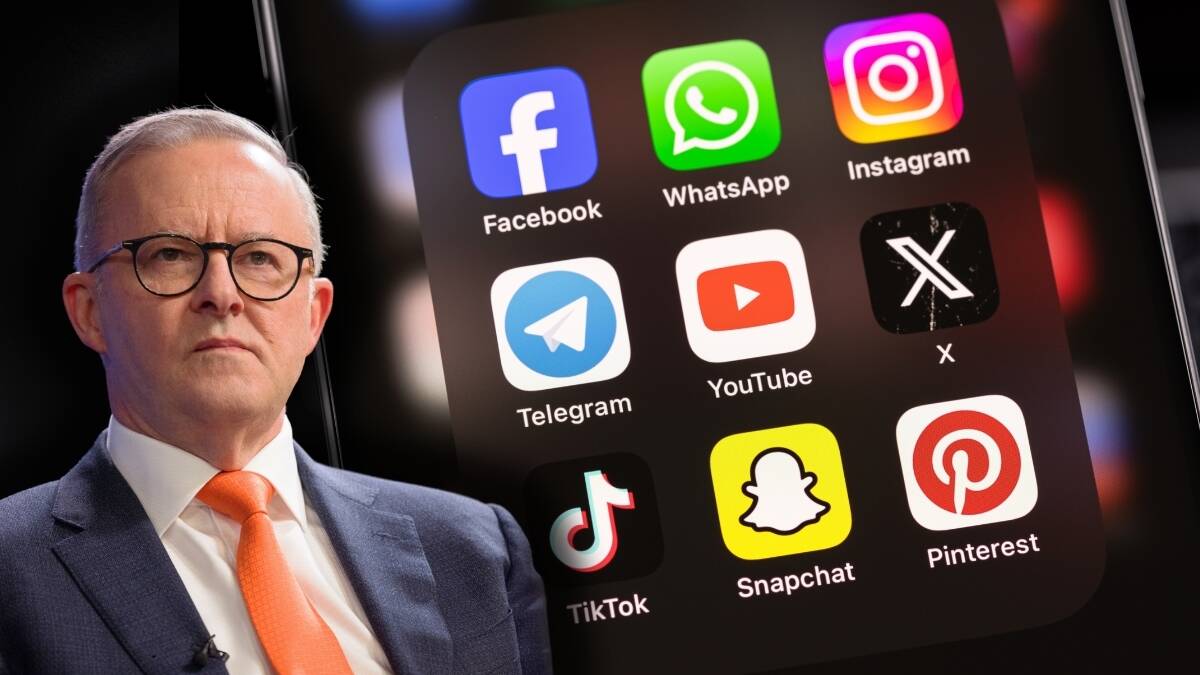The Albanese government is pushing ahead with its plan to force social media companies to pay for Australian news content carried on their platforms.
Subscribe now for unlimited access.
or signup to continue reading
Treasury has published a long-awaited discussion paper on the news media bargaining incentive, first promised almost a year ago.
Under the plan, tech giants Google, Meta (which owns Facebook and Instagram) and TikTok would be hit with a levy if they do not voluntarily enter into deals with publishers to pay for their content.

"If they don't enter into agreements, that is where the incentive payments will be levied," assistant treasurer Dan Mulino told reporters in Sydney on Thursday.
"A strong independent media and public interest journalism in particular is critical to our democracy and that's why this issue, this reform is so important."
The government moved slowly on the plan amid concerns US President Donald Trump may retaliate against any new tariffs.
The scheme is intended to ensure that large digital platforms contribute to the sustainability of news and journalism in Australia by encouraging commercial deals, and is being characterised as an incentive rather than a tax.
Once legislated, the incentive would apply to all large digital platforms operating significant social media or search services in Australia.
The government came up with the plan to address concerns that the Coalition-era news media bargaining code was no longer working, after Meta ended deals with Australian publishers worth about $200 million a year.
Dr Mulino said Treasury had estimated that these had been worth about 1.5 per cent of the tech giants' gross revenue.
The new penalties would be 2.25 per cent of revenue, meaning those that comply would achieve tax savings.
Meta, if it does not comply, would face a tax hit of $112 million a year, and this revenue would be handed to media companies.
The government is still considering how any revenue raised would be divided between smaller and larger media companies.
Prime Minister Anthony Albanese, who met with Mr Trump in October, said in June that his government respected the "vital role" of the news media, "particularly local papers".
"It is of critical importance that those media organisations are able to survive," Mr Albanese said at the time.
Dr Mulino said on Thursday: "The Albanese government acknowledges that a public interest journalism is critical to the health of our society, and indeed to our democracy."
The proposed incentive cannot be avoided by dropping Australian news content, like Meta did in Canada.
Meta has previously stated that most of its users "do not come to our platforms for news content" and that it had concerns about "charging one industry to subsidise another", arguing that publishers "voluntarily choose to post content".
A spokesperson said on Thursday that the company would "review the proposal and look forward to participating in the government's consultation process."
Google has renewed or entered new partnerships with some Australian outlets, including Australian Community Media (publisher of this masthead), Junkee, Yahoo, Private Media, The Conversation, Schwartz Media and Southern Cross Austereo.
Consultation on the news media bargaining incentive will close on December 19.
Google and TikTok declined to comment.












